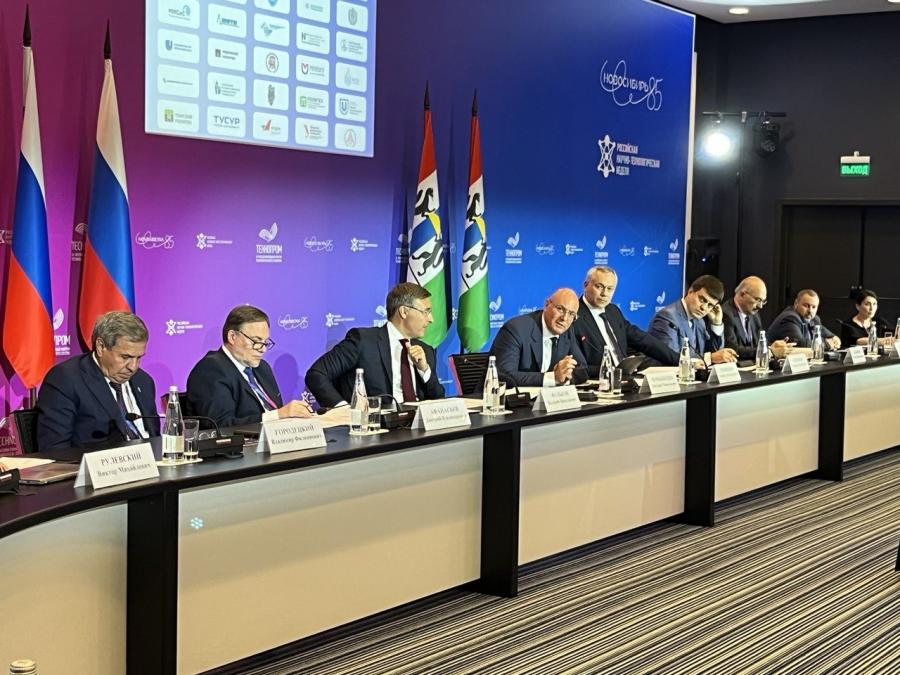MEPhI Rector Vladimir Shevchenko took part in the "Advanced Engineering Schools" round table as part of the Technoprom-2022 International Technological Development Forum. In his speech, the rector called for uniting all elements of engineering training - students, universities and employers - in a single value-activity field.

The participants of the "Advanced Engineering Schools" round table
The round table was devoted to the discussion of the preliminary results, problems and prospects of the Advanced Engineering Schools (AES) competition, the methodological and methodological operator of which is MEPhI. Opening the discussion, the Minister of Science and Higher Education of Russia Valery Falkov noted that in our time the entire material and non-material world, including biological objects, has become an object of engineering. And so the question arises: what should a modern engineer be like?
Deputy Prime Minister of the Government of Russia Dmitry Chernyshenko stressed that engineering activities should end with a real product that brings benefits. He highly appreciated the AES project, noting that the partnerships between universities and high-tech companies that have developed within the framework of the project are especially promising. The Deputy Prime Minister also expressed confidence that many projects that could not join the AES in the first wave will be able to participate in the second stage, however, the competition will be even higher.
Answering a question from Valery Falkov about what an engineer should be like in the 21st century, MEPhI Rector Vladimir Shevchenko recalled that the history of engineering and engineering education in Russia goes back centuries, to the Pushkar Order of the times of Ivan III, to the School of Mathematics and Navigational Sciences, the Moscow Craft Educational Institution - the predecessor of the Bauman Moscow State Technical University. An important role was played by the Institute of the Corps of Railway Engineers, founded by Augustine de Betancourt, whose alumni and their students built the Trans-Siberian Railway. All this created the basis for the Soviet engineering school, the peaks of which were the implementation of space and nuclear projects.
According to the rector of MEPhI, today the development of engineering depends on the interaction of three components: people receiving an engineering education in demand, universities capable of providing such an education, and employing companies.
Applicants who enter the leading technical universities in Russia, as Vladimir Shevchenko emphasized, are not inferior to their peers who come to the best technical universities in the world. And many graduates of Russian universities have the potential to become world-class specialists. At the same time, the country needs much more companies that are the holders of the world technological frontier in their field and set ambitious goals for themselves.
Vladimir Shevchenko noted that the task of the AES is to unite all three components of the engineering training of all universities - the winners of the AES and their industrial partners in a single value-activity field. It is the successful practices of achieving such a synergistic effect that MEPhI intends to broadcast to the entire system of engineering education in the country - as a methodological and methodological operator of the project.
Speaking about the features of today's engineering, Vladimir Shevchenko noted that modern engineering is largely interdisciplinary, depends on the combination of knowledge related to different scientific fields, and it is on this path that the future of the engineering profession lies.





